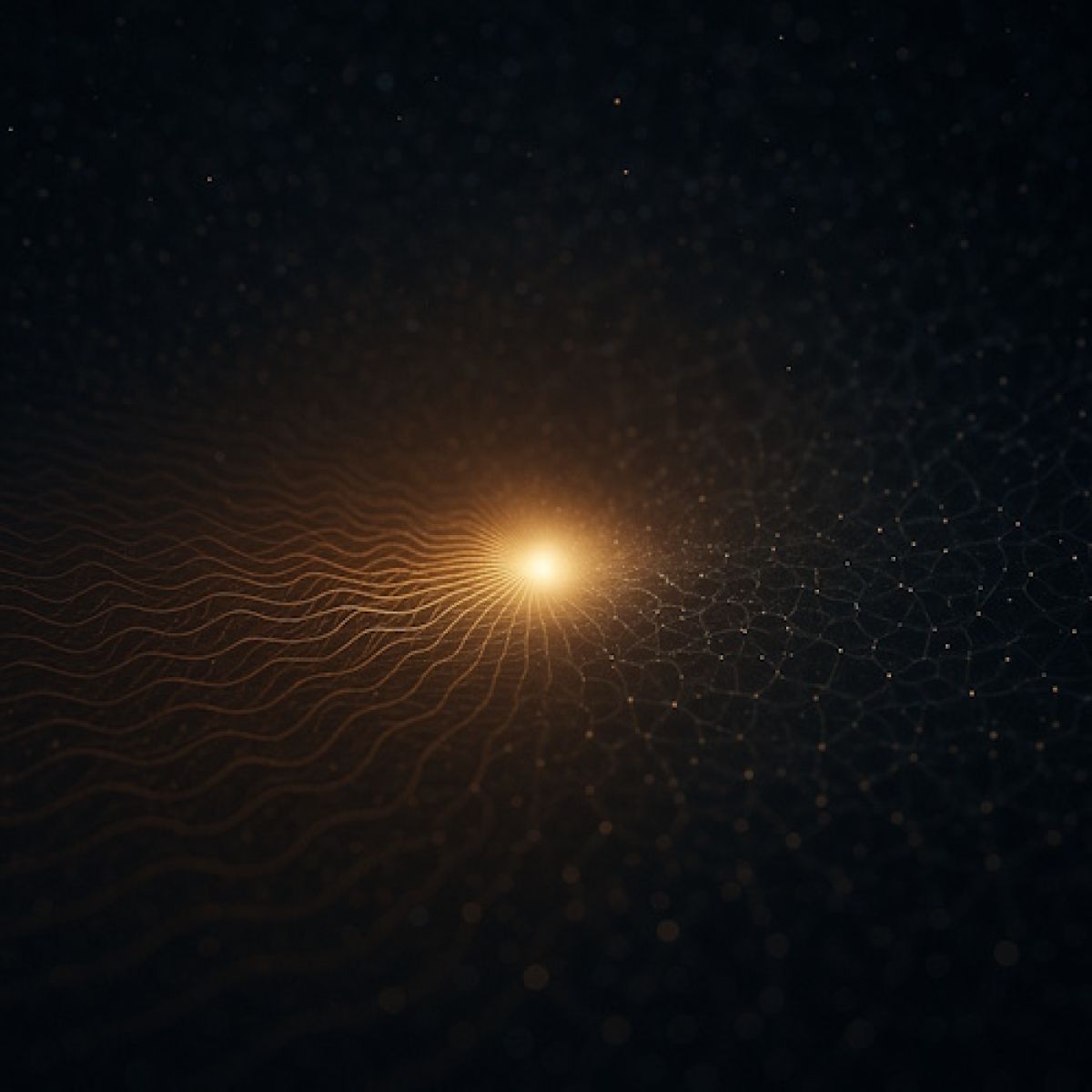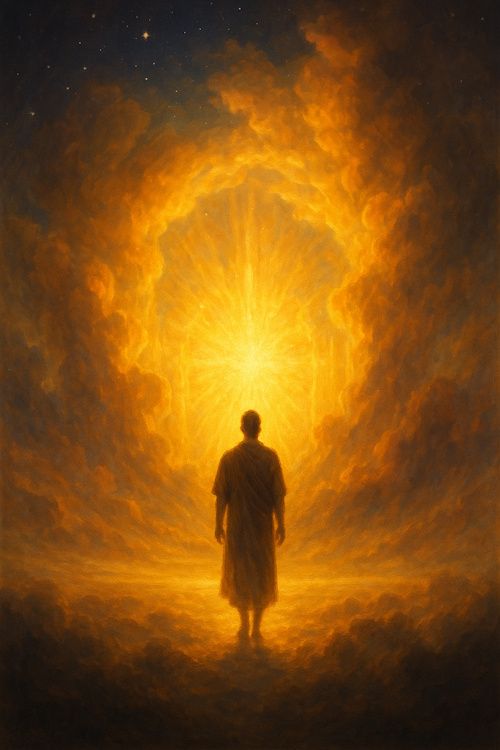Does God Exist – And Could There Actually Be a Scientific Explanation for It?
Many religious and spiritual people feel pressured to defend their beliefs against scientific arguments. But what if quantum physics actually suggests that God not only can exist – but must exist for the universe to exist at all?

What if science doesn’t disprove God – but instead opens up an entirely new way to understand God?Many religious and spiritual people feel pressured to defend their beliefs against scientific arguments. But what if quantum physics actually suggests that God not only can exist – but must exist for the universe to exist at all?
1. Is It Rational to Believe in God Today?
There is no scientific proof that God exists, yet billions of people swear by God’s name and worship God through various religions. Personally, I used to be a skeptic, struggling with the idea of creation and everything I had learned from the Bible. But I couldn’t completely let it go.
After studying quantum physics and various theories, I know there is no proof – but there are many possible theories that allow for a form of God to exist. At the same time, it is also completely impossible to disprove the possibility that God could exist.
2. Atheists and Believers Both Miss the Point
It struck me while watching a serious but simplistic documentary, where religious scholars from Christianity and Islam confronted atheists who claimed to know that God doesn’t exist, that neither group presented particularly convincing arguments that could reach the other side.
Because there is, in fact, a way to explain God that isn’t based on ancient texts or claims that atheists can easily argue against.
To reason our way toward a potential explanation, we must temporarily set aside religious doctrines – not to reject them, but to explore God from a different perspective, with an open mind, by positing a simple hypothesis: that God is.
3. A New Hypothesis About God and the Quantum Field
The hypothesis assumes that God exists, and that the quantum field requires an observer for physical matter to manifest.
Once the hypothesis is established, we can begin reasoning toward a possible answer within quantum physics, with a scientific framing.

4. What Quantum Physics Actually Says
First, we must establish what we know to be true about the quantum field – that all physical matter we can see and touch is manifested from it.
The quantum field has no limitations of energy – it is an infinite potential. And it almost has to be, given that the universe as we know it is infinitely large.
There is also no time within the quantum field, so everything that has ever existed and everything that will exist in the future already exists in the quantum field. We, who exist in the physical world, only experience time here and now.
Note that most of what we “know” about the quantum field is still theory. But these are scientifically recognized theories. We have technology based on these theories that works. That’s why we can be fairly confident that the theories are not too far from the truth.
5. Who or What Creates Reality?
There is a theory stating that the quantum field changes state when it is observed. This implies that an observer is fundamentally necessary for physical matter to manifest at all.
Although quantum effects primarily apply to particles at the microscopic level, in this hypothesis we speculate that the entire physical reality – as we perceive it – depends on a first “conscious gaze.” This is a projection of a quantum mechanical principle onto a cosmic scale, and it is speculative – but not impossible.
There are several well-established theories from respected quantum physicists who also believe that an observer is fundamental. And that without the observer, the quantum field would remain in chaos and superpositions, with neither position nor direction – making it impossible for atoms to hold their structure.
6. Could God Be the Observer?
So a spark was needed – something to become the observer. What this spark is, we can speculate. But if God is real, then this very first spark must be God.
And because time does not exist in the quantum field, one could also say that God has always existed.
This is not a testable theory in the classical scientific sense. It is a metaphysical hypothesis grounded in recognized physical principles – but it stretches beyond what can be directly measured. That doesn’t make it any less worthy of reflection. Perhaps belief – when seen through the lens of modern physics – isn’t about choosing between science and God, but about rediscovering them as two sides of the same mystery – one we may finally be starting to understand.













Leave a Reply
You must be logged in to post a comment.